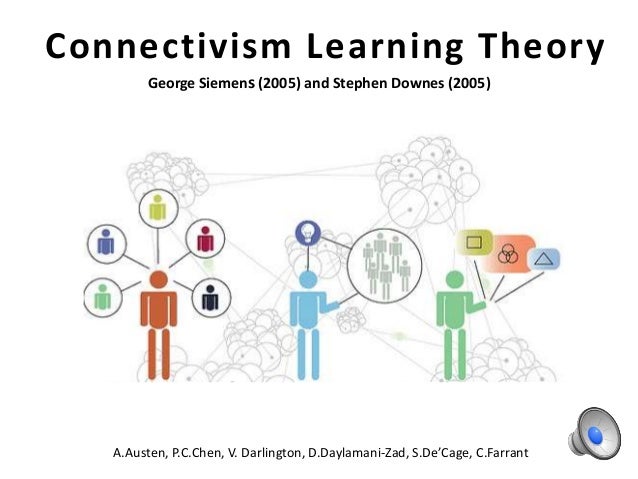KEY WORDS:
experiential: here-and-now concrete experiences, continuous, reflective observations, abstract conceptualizations, active experimentation
connectivism: digital era, networks, learning ecology, cycle, collectivism


I believe that experiential learning complements and further supports connectivism.
Experiential learning is a defined as a learning process in which, knowledge is developed and reformed through ones personal experiences (Siemens, 2005, p. 26). Learning is not fixated nor 'handed to' an individual, but constantly changing based on ones past, current, and future real time events (Siemens, 2005. p.25). Experiential learners navigate through a continuous cycle involving : concrete experience, reflective observations, abstract conceptualizations, and active experimentation (Siemens, 2005, p. 38). These four stages help mold ones learning.
Connectivism stresses not the knowledge that exists, but the means or the 'pipeline' in which ones gets that knowledge (Kolb, 1984, p. 7). It is the learning ecology and networks that develop that are key in supporting the development of ones learning. For example, Kolb (1984) "...realizes that since "...complete knowledge cannot exist in the mind of one person requires a different approach to creating an overview of the situation" (p. 6). It is important for individuals to be connected to others so that experiences and knowledge can both be easily shared and accessed. Technology plays a great role allowing for immediate sharing and accessing of knowledge. To a large extent, networking at this level is only possible with the technology advances present today.

I believe that experiential learning supports connectivism learning because, experiential allows for the creating of authentic knowledge within an individual. If individuals engage in experiential learning and then shares it with others, a network of knowledge, connectivism, is being built. According to Kolb (1984), "The starting point of the connectivism is the individual. Personal knowledge is comprised of a network, which feeds into organizations and institutions, and which in turn feed back into the network, and then continue to provide learning to individual" (p. 6). The visual models above further support my thinking. I visualize multiple individual experiential cycles (left) being shared/reflected/adapted, resulting in a network or learning ecology (right).
No comments:
Post a Comment